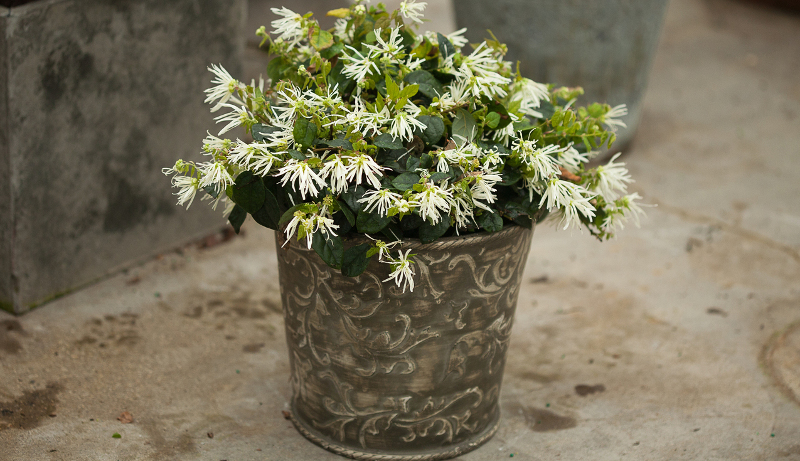Loropetalum adds color and texture to the landscape for the entire year. Their graceful shape and branching make these evergreens an enjoyable addition year round. For those gardeners in hardiness zones 7-10, very little care will be needed for your loropetalum during the winter months. These plants will continue to grow, although very slowly, and add interest for the winter season.
Cutting Back Loropetalum For Winter
Pruning for winter is not necessary for loropetalum. Plants will slow their growth and need time to harden off before the cold weather arrives. You can remove dead or damaged growth, but avoid major pruning during this time because plants will take a longer time to recover.
Loropetalum Winter Care in Pots
If you are live in a cooler climate, your plant will need extra care. Move your pot to an indoor space where the plant will not freeze. Reduce the amount of water given to the plant. Although it should not dry out completely, soggy soil can be damaging.

If you are in a climate where loropetalum is not hardy, you may consider growing this plant as an annual. If you have limited space, or even if you just like to try new plants each year, you can pull the shrub from its container in the fall and add it to your compost.
Watering Loropetalum in Winter
Loropetalum planted in the ground may need watering during the winter months, even if the cooler weather slows the plants down. Continue to water the plants deeply, but decrease the frequency of watering. Most loropetalums in the landscape will be fine with water every 7-10 days when precipitation is scarce.
Growing Loropetalum Indoors
Loropetalums are rarely seen as a houseplant because of their need for bright sunlight. If you decide to bring your plant indoors, place it in a sunny southern- or western-facing window. Monitor your loropetalum health; leggy branches and purple leaves turning green are indicators that the plant is not getting enough sunlight.
 |
Author Keri Byrum - Published 06-26-2020 |
